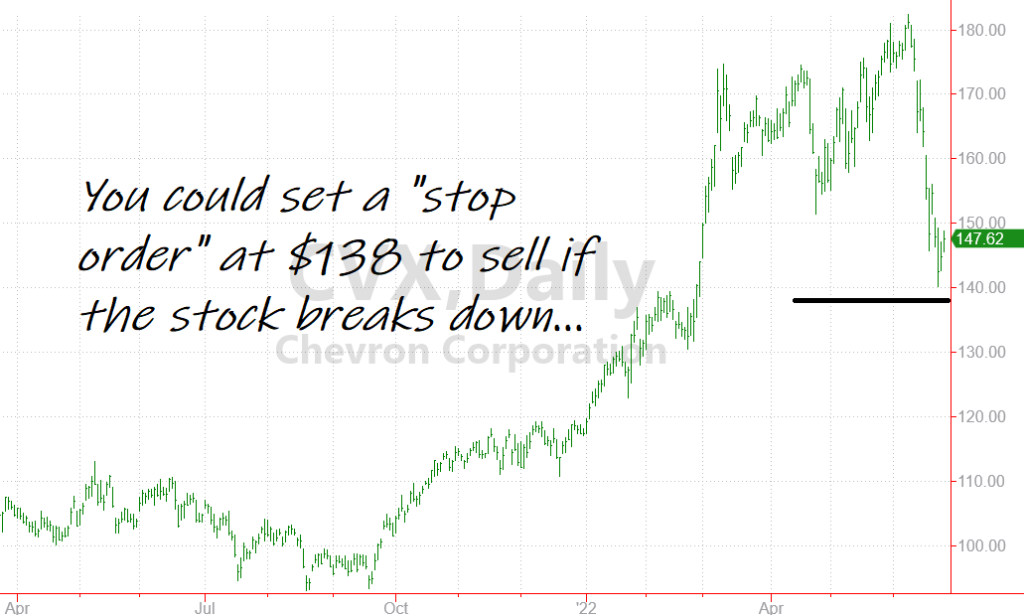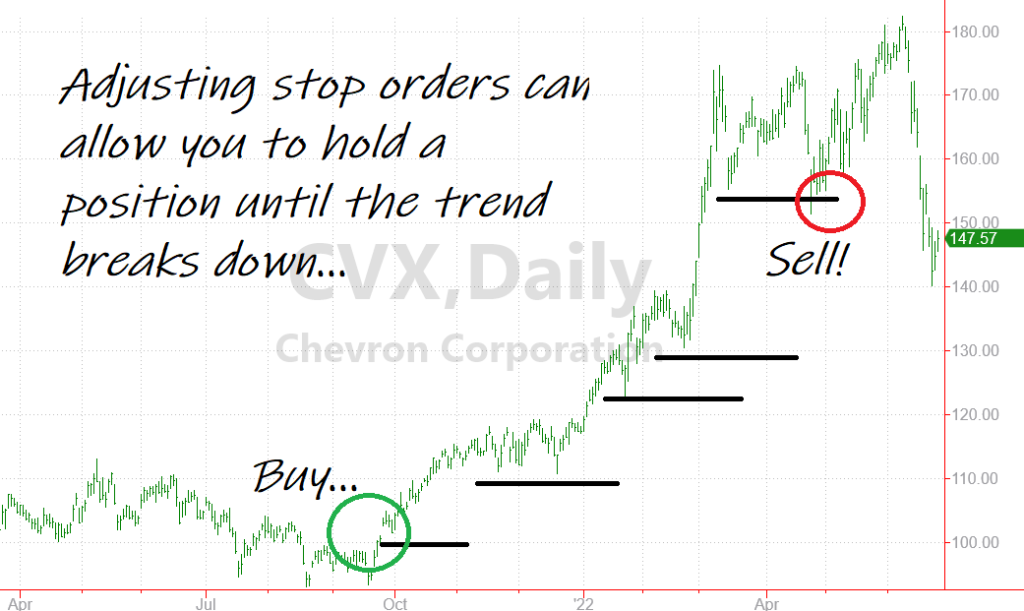
[Editor’s Note: This is Part I of a new series on when (and how) to close investment or trade positions. Stay tuned for more tips and tools to protect and grow your wealth!]
“Hey Zach, what stock should I be buying right now?”
I’ve heard the question dozens of times just this year… probably thousands of times over the course of my career.
In the world of investing, it’s easy to focus on the next big thing…
But often, that means we’re not paying close attention to the stocks we’ve already invested in. And that can be a big mistake — especially in a bear market like we’re in right now.
So this week, I wanted to switch gears a bit and talk about some tools you can use to know when to sell your stocks — either to manage your risk or lock in profits.
Plan Your Trade — and Trade Your Plan
Whether you’re a long-term investor or a short-term trader, you MUST have a plan for each position you take.
It’s easy to decide that you want to buy a stock. But that’s only the beginning!
Successful traders and investors have a plan for what to do if they’re wrong about a position — and also how to manage a position if they’re right.
Setting up a plan ahead of time makes it easier to be objective with your position once the profits or losses start adding up. And that adds some protection against our human nature for making emotional decisions.
(Emotional investment decisions almost never turn out well.)
Of course, once your plan is in place, it’s also important to have the discipline to follow that plan.
One tool to help with this is a “stop order” which you can easily place in your brokerage account.
Let’s take a look at how this order works.
A Stop Order Automatically Sells Your Stock
Let’s say you own 100 shares of Chevron Corp. (CVX).
(Full disclosure: I currently have a position in CVX options as part of my Speculative Trading Program)
The stock is currently trading near $147. And it recently bounced after pulling back near $140.
You might consider buying shares today, and then placing a “stop order” at $138 — a bit below the recent low.
If you’re playing for a bounce in CVX, any move below the $140 area would likely mean you are either wrong — or too early on your trade. So it makes sense to exit if the stock trades materially below this level.

You could place a sell stop order at $138 and leave the order “good till cancelled” in your brokerage account.
With this order, your brokerage will automatically sell your shares any time the stock hits $138.
And by placing a stop order and leaving it with your broker, you won’t have to manually pull the trigger if the stock trades below this level.
This is helpful if you don’t have time to watch your positions throughout the day. And also helpful to keep you from second guessing your original trading plan.
Moving Stop Orders to Lock In Profits
Many traders adjust their stop orders as a stock moves in their favor.
This way, they continue to hold their position s long as the trend is in their favor — but then exit the position once that trend breaks down.
Assume you purchased CVX when the stock started to move higher in September of last year.
You could have started with an initial stop order. And then you could have adjusted that stop order every time the stock pulled back and then surged higher again.
Looking at a chart for CVX, there are a number of different logical spots for setting up a new sell stop order.

Adjusting the your sell stop price ever time the stock pulled back would have eventually caused you to automatically sell your shares in April — while holding on to the stock for a very strong gain over the previous six months.
Of course your decision to buy or sell may include many other variables. But using stop orders is one way to manage an open position objectively. It can be a great tool for managing your risk and also allowing your profits to grow.
Tomorrow, I’ll show you a variation of this tool that can be especially helpful for profitable positions. And we’ll also start talking about some alternative methods for getting the most out of your investments.
Here’s to growing and protecting your wealth!
Zach
